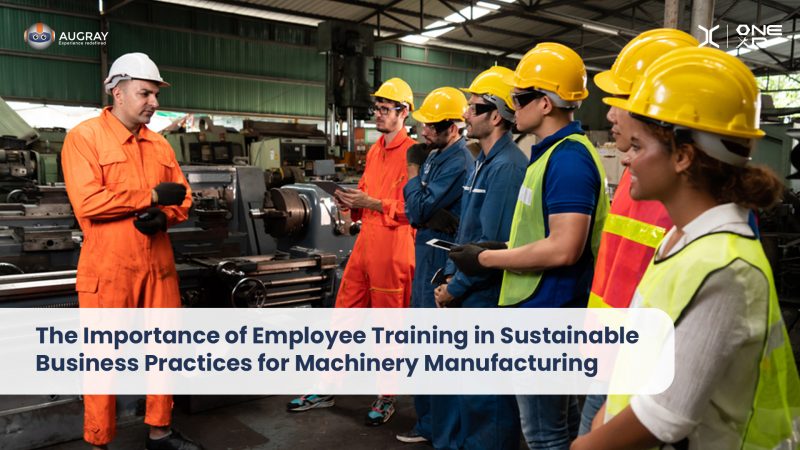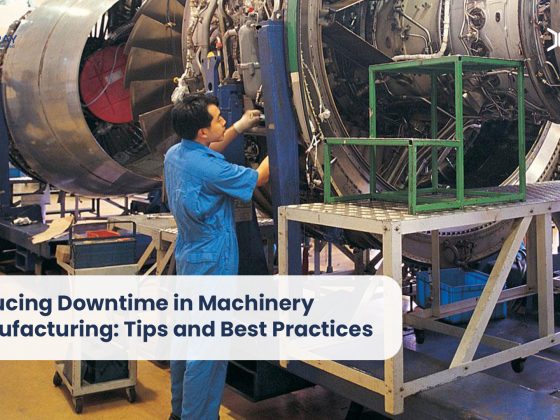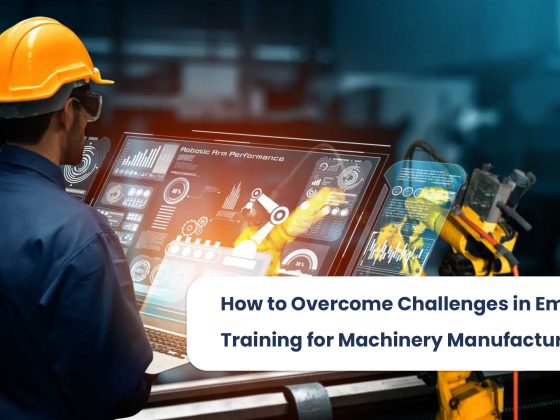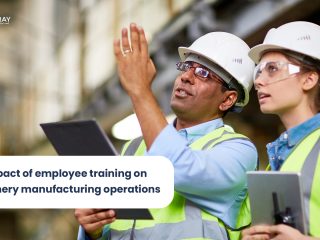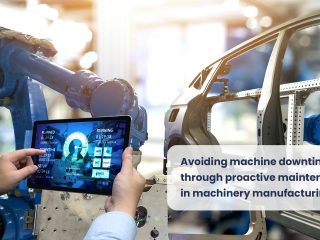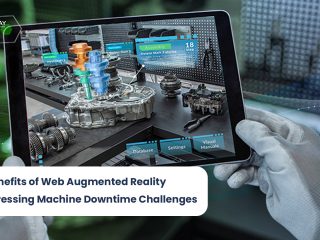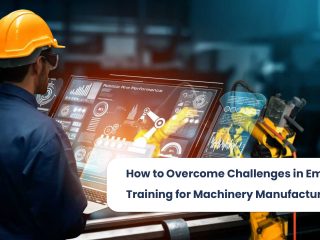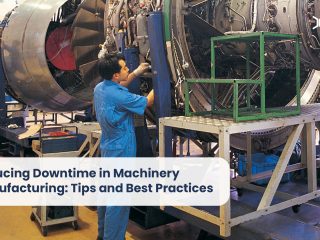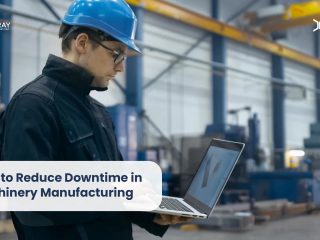In today’s rapidly changing world, sustainable business practices have become paramount for companies across industries. In the machinery manufacturing sector, embracing sustainability not only benefits the environment but also contributes to long-term profitability and competitiveness. One crucial aspect of sustainable business practices is employee training, which plays a pivotal role in driving and implementing sustainable initiatives.
This blog explores the importance of employee training in sustainable business practices for machinery manufacturing, with a focus on how extended reality (XR) technologies can enhance training effectiveness. We will delve into examples and advantages of XR-based training for sustainability in this sector.
Enhancing Environmental Awareness and Compliance:
Employee training is key to fostering environmental awareness and ensuring compliance with sustainability regulations. XR technologies, such as augmented reality (AR) and virtual reality (VR), offer immersive and interactive training experiences that engage employees and instill a deep understanding of environmental concerns.
For example, training modules can simulate scenarios where employees witness the consequences of improper waste management or excessive energy consumption. XR-based training empowers employees to make informed decisions and adopt sustainable practices, ensuring compliance with regulations and reducing environmental impact.
Advantages of XR-based training for environmental awareness and compliance:
a) Engaging and memorable experiences: XR-based training captivates employees with interactive simulations, leaving a lasting impression and improving knowledge retention.
b) Risk-free experimentation: VR simulations allow employees to experiment with sustainable practices without risking damage to real machinery or the environment.
c) Real-time feedback and assessment: XR technologies enable trainers to provide immediate feedback and assess employees’ understanding of sustainability concepts, ensuring effective learning outcomes.
Promoting Energy Efficiency and Resource Conservation:
Efficient energy use and resource conservation are fundamental components of sustainable manufacturing. Training employees on energy-saving practices, such as optimizing equipment settings or reducing idle time, can significantly contribute to a company’s sustainability goals. XR technologies provide a powerful tool for training employees on energy-efficient practices.
For instance, AR-based training can overlay digital information onto machinery, guiding employees on proper usage, highlighting energy-saving features, and demonstrating the impact of energy-efficient actions. VR simulations can also simulate resource-constrained scenarios, encouraging employees to find innovative solutions to conserve resources.
Advantages of XR-based training for energy efficiency and resource conservation:
a) Practical and hands-on learning: XR simulations enable employees to actively engage in energy-saving practices, leading to a deeper understanding and increased motivation to implement sustainable measures.
b) Real-time performance monitoring: XR solutions can integrate sensors to monitor energy consumption or resource usage, providing real-time feedback to employees and facilitating continuous improvement.
c) Scalability and cost-effectiveness: XR-based training can be easily scaled to reach a large number of employees, reducing the need for physical equipment and resources, and minimizing costs associated with traditional training methods.
Waste Reduction and Recycling Initiatives:
Effective waste management and recycling are integral to sustainable manufacturing. Training employees on waste reduction practices, recycling guidelines, and proper disposal techniques can help minimize the environmental impact of machinery manufacturing processes. XR technologies offer innovative training solutions in this area.
AR applications can overlay digital instructions on recycling bins, guiding employees on correct sorting practices. VR simulations can replicate waste management scenarios, allowing employees to practice waste segregation or identify opportunities for waste reduction within a virtual environment.
Advantages of XR-based training for waste reduction and recycling initiatives:
a) Immersive learning experiences: XR technologies create realistic and interactive training environments, enabling employees to gain practical experience in waste reduction and recycling processes.
b) Error-free training: XR simulations eliminate the risk of improper waste handling during training, ensuring employees develop accurate waste management skills.
c) Continuous reinforcement: Regular XR-based training sessions can reinforce waste reduction practices, keeping sustainability goals at the forefront of employees’ minds and promoting a culture of responsible waste management.
Product Lifecycle Management:
Sustainable machinery manufacturing extends beyond the production phase and includes managing the entire product lifecycle, including design, distribution, use, and disposal. Employee training plays a vital role in understanding and implementing sustainable practices at each stage. XR technologies can support training initiatives in this area.
For instance, VR simulations can recreate scenarios where employees optimize product designs for energy efficiency or practice disassembling machinery for recycling. AR can provide on-the-job guidance to employees, overlaying digital information on products to facilitate proper maintenance or repair, thereby extending product lifecycles and reducing waste.
Advantages of XR-based training for product lifecycle management:
a) Holistic understanding: XR-based training enables employees to grasp the entire product lifecycle and their role in promoting sustainability across different stages.
b) Remote assistance and support: AR-based systems allow employees to access real-time guidance and expert support during maintenance or repair tasks, enhancing efficiency and ensuring sustainable practices are followed.
c) Improved customer satisfaction: Employees trained with XR technologies can provide better customer support, offering guidance on sustainable product usage, maintenance, and end-of-life options, leading to increased customer satisfaction and loyalty.
Conclusion:
Employee training plays a pivotal role in driving sustainable business practices within the machinery manufacturing sector. By leveraging XR technologies such as AR and VR, companies can enhance the effectiveness of sustainability training programs.
XR-based training empowers employees with environmental awareness, promotes energy efficiency and resource conservation, supports waste reduction initiatives, and fosters responsible product lifecycle management. The advantages of XR-based training include engaging experiences, risk-free experimentation, real-time feedback, scalability, and cost-effectiveness.
Embracing XR in employee training not only contributes to a sustainable future but also positions machinery manufacturing companies as leaders in environmental stewardship, fostering long-term success and competitiveness.
